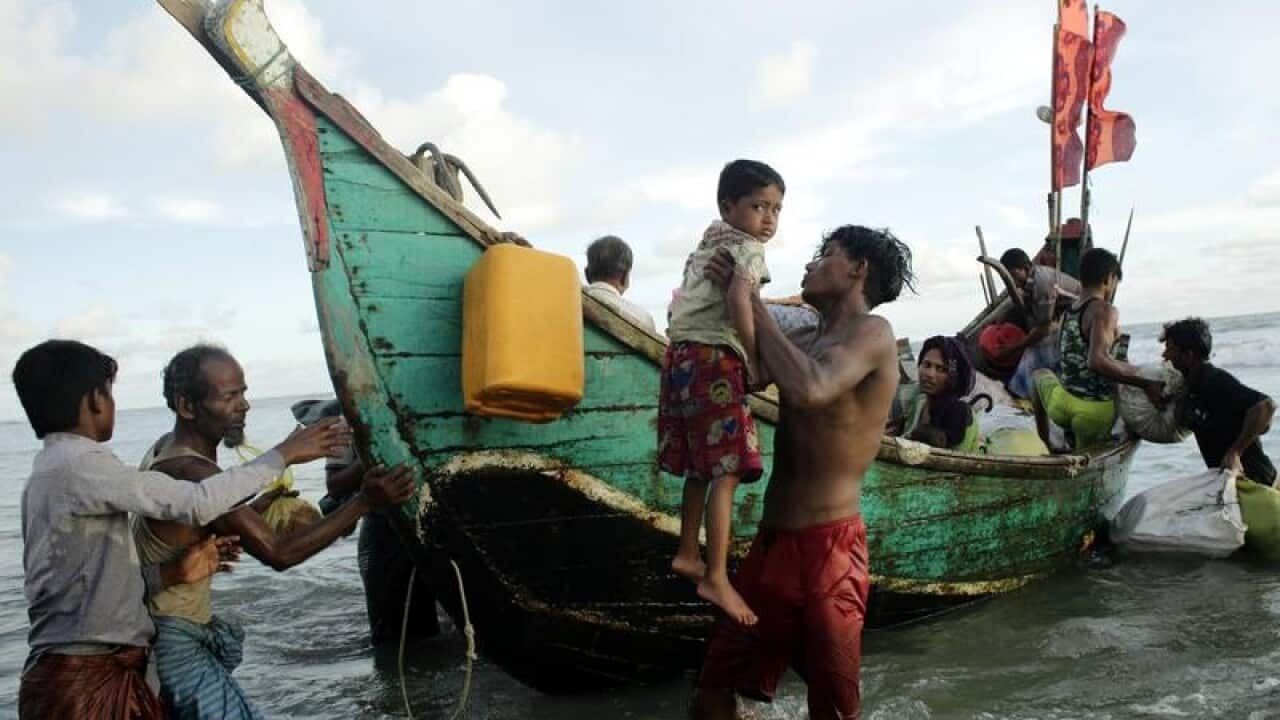Aid organisations are still not able to access all of Myanmar's restive Rakhine state, where deadly violence has displaced hundreds of thousands of minority Muslims, the UN food agency and the Red Cross have said.
"We can't go to the northern part because military operations are ongoing," said Bettina Luescher, spokeswoman of the World Food Programme.
However, the UN food agency has resumed deliveries in the central part of Rakhine this week for 50,000 displaced people.
While the Red Cross has been able to help 10,000 people in Myanmar, its aid has mostly reached cities.
The organisation does not have access to villages, according to Sanela Bajrambasic, spokeswoman of the International Committee of the Red Cross.
The Red Cross therefore does not know how many villages have been destroyed since the violence broke out late last month, she said.
International pressure is mounting on Buddhist-majority Myanmar to end the security operation against the marginalised Rohingya Muslim community in Rakhine, which was triggered on August 25 when Rohingya militants attacked police posts.
"Our field research backs what the satellite imagery has indicated - that the Burmese (Myanmar) military is directly responsible for the mass burning of Rohingya villages in northern Rakhine State," said Phil Robertson, deputy Asia director at Human Rights Watch.
"The United Nations and member countries should urgently impose measures on the Burmese government to stop these atrocities and end the forced flight of Rohingya from Burma."
Before the latest wave of violence in the area, nearly a quarter of Rakhine's 1.1 million inhabitants had been receiving UN food rations.
Half of the children in Rakhine were malnourished, according to the UN Children's Fund.
As some 400,000 Rohingyas have fled to neighbouring Bangladesh in the past weeks, leading UN officials have said that the crisis carries the hallmarks of ethnic cleansing.











